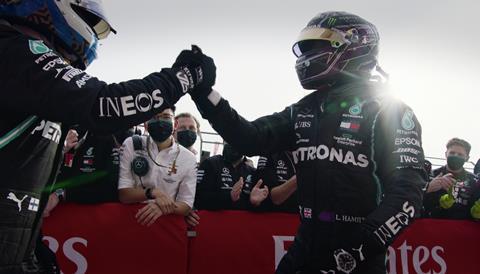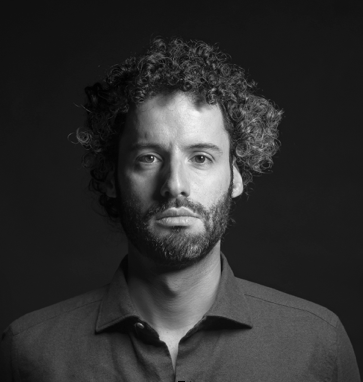Jaime Mandelbaum, chief creative officer of VML EMEA, looks at why the sport is becoming secondary for some brands

This month, Lando Norris became only the seventh British driver to win the F1 British Grand Prix at Silverstone - an impressive achievement by any measure. But beyond the track, fans could head to the on-site mainstage for performances from Sam Fender, RAYE, Fatboy Slim, and The Blossoms.
It wasn’t just a race. It was a festival.
We’re witnessing a shift in the spectacle of sport - one where the action on the pitch, court, or track is only part of the draw. Today’s major events are being reimagined as full-scale cultural mash-ups. Live sport is no longer a standalone experience; it’s part of a wider ecosystem that blends music, fashion, creator culture, and interactive tech into a single, immersive moment.
The F1 experience is going off-track and accelerating into pop culture.
From stadium to stage: a new fan expectation
Manchester United’s Old Trafford is famously called The Theatre of Dreams, and that label feels more accurate than ever. Fans no longer show up just for 90 minutes of sport; they expect drama, storytelling, and spectacle throughout.
That demand is driving brands and organisers to evolve. A recent study by Comcast Advertising’s Effectv claimed that 85% of sports fans prefer watching live games at home rather than in person. And when they do show up, they want more than just a seat in the stands; they want interactive tech, behind-the-scenes content, and cross-cultural appeal.
This shift in desire demands a shift in design.
We’re already seeing this play out. The NBA’s touring ‘House’ experience brings immersive games, player meet-and-greets, and merch drops to city centres. Formula 1’s music stages and festival vibes are part of the same trend. Sport is no longer a silo, it’s a launchpad for broader engagement.
Creators in, and out the paddock
Some may roll their eyes, but the creator era isn’t going anywhere - and in sport, it’s getting supercharged. The traditional celebrity gridwalk at F1 has expanded to include creator team partnerships, social-first pit access, and even creator laps in F1 simulators.
This is more than just access. It’s active collaboration.
From Netflix’s Drive To Survive to the F1 film starring Brad Pitt, the line between athlete, creator, and entertainer is blurring fast. What started as social media clout-chasing has evolved into fully integrated content ecosystems: pop-up experiences, lifestyle collections, and creator-led brand campaigns.
Cultural alignment is the new sponsorship. Brands are embedding themselves into these hybrid spaces through creators who can authentically connect with fans on their own terms. A DJ set in the paddock isn’t an afterthought, it’s part of the main event.
Content is currency
In the age of TikTok, Twitch, YouTube Shorts, and BeReal, content isn’t a byproduct, it is the product. Audiences crave snackable, behind-the-scenes, real-time material. The best sporting events are built with this in mind: every angle is a moment, every moment is content, and every piece of content fuels amplification.
Just look at the King’s League, a social-first football league with rules created through fan voting on social media. Games are shorter, with Twitch-style narration, blending traditional football with modern entertainment formats.
And this isn’t just happening in big leagues. Take Ryan Reynolds and Rob McElhenney’s takeover of Wrexham AFC. What began as a lower-tier football club has transformed into a global content property - complete with a hit docuseries, celebrity visibility, and international brand partnerships. Wrexham isn’t only competing for promotion to the Premier League but leading the battle for cultural relevance.
As this convergence ramps up, the question is no longer, ‘How can brand X sponsor Team Y?’ It’s, ‘How do we embed into the cultural current?’ That means going beyond broadcast deals to create digital-first experiences designed to stretch far beyond the event itself, through creators, stories, and community.
Music is also a powerful part of that strategy. In the UK alone, the music industry contributes over £10 billion a year, according to industry body UK Music, and sport is increasingly tapping into that energy. The Champions League final, for example, kicked off with Linkin Park this year, while the continuous partnerships between Barcelona, Spotify, and artists from Taylor Swift to Travis Scott, see fans of both introduced to each other and are building a stronger fan bases because of it.
Whether it’s creators, artists, or the athletes themselves, today’s sports experiences are built to flex across platforms and passions. From American Cornhole going primetime to NBA games in the metaverse, sport is expanding - and brands need to expand with it.
The age of the mash-up
In today’s cultural landscape, the live game, whether football, baseball, or Formula 1, is just the beginning. Sports experiences are now designed to flex across platforms and passions, built to be social-first, shareable, and layered with crossover appeal. From NBA games in the metaverse to athletes collaborating with creators and artists, sport is the stage, but culture is the show.
The industry needs to help brands ride this cultural wave. Because in this new world, it’s not about the main event anymore. It’s about everything around it.
Welcome to the golden age of the mash-up.

Jaime Mandelbaum is chief creative officer of VML EMEA





No comments yet